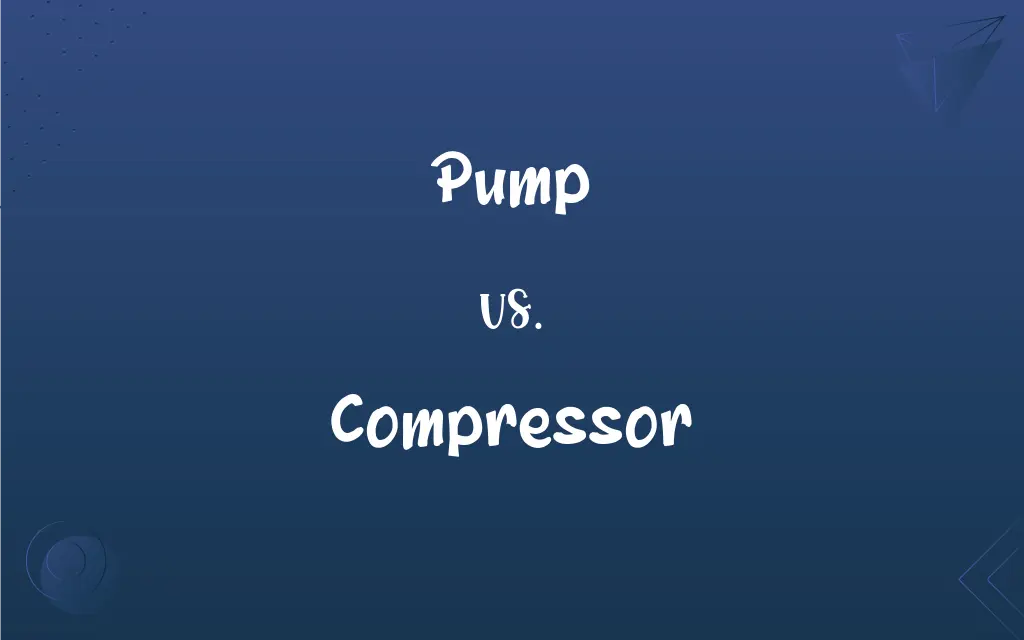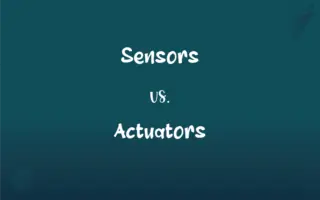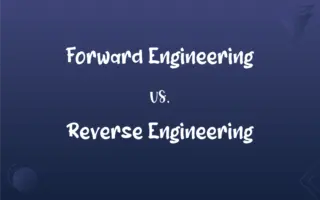Pump vs. Compressor: What's the Difference?
Edited by Aimie Carlson || By Harlon Moss || Updated on August 8, 2024
A pump moves fluids (liquids or gases) by mechanical action, while a compressor reduces the volume of gas by increasing its pressure.

Key Differences
Pumps are mechanical devices designed to move fluids (either liquids or gases) from one place to another through various mechanical actions. They operate by creating a pressure difference, facilitating the fluid to move through the system. In contrast, compressors are specifically designed to compress gas and increase its pressure by reducing its volume. Compressors are widely used in systems where gas compression is required, such as air conditioning and refrigeration systems.
The functionality of a pump involves the transfer of fluid with little to no alteration in the fluid's inherent properties, like its pressure, temperature, or volume. Pumps simply relocate the fluid. On the other hand, a compressor not only moves the gas but also significantly changes its pressure and often its temperature. Compressors are essential in processes where gas needs to be stored under higher pressure than its original state.
Pumps come in various types, including centrifugal, positive displacement, and submersible pumps, each designed for specific fluid movement tasks. They are crucial in water supply systems, oil pipelines, and chemical processing. In contrast, compressors can be reciprocating, rotary screw, or centrifugal. They are key in pneumatic systems, refrigeration cycles, and turbochargers in engines, where gas compression is vital.
The operation of a pump is typically characterized by its flow rate, which is the volume of fluid it can move per unit of time. Pumps are selected based on the type of fluid, the required flow rate, and the desired pressure change. Conversely, the performance of a compressor is often described in terms of its pressure ratio and capacity, which relates to the volume of gas it can compress to a certain degree within a given time frame.
Pumps and compressors serve distinct but sometimes overlapping roles in fluid handling and gas compression. Pumps are primarily used for transporting fluids without significantly altering their state, while compressors are dedicated to increasing the pressure of gases, often changing their volume and state in the process.
ADVERTISEMENT
Comparison Chart
Function
Moves fluids (liquids/gases)
Compresses gas and increases its pressure
Fluid Type
Handles both liquids and gases
Primarily used for gases
Process
Transfers fluid with minimal changes in properties
Compresses gas, changing its volume and pressure
Types
Includes centrifugal, positive displacement, etc.
Includes reciprocating, rotary screw, centrifugal
Typical Applications
Water supply, oil pipelines, chemical processing
Air conditioning, refrigeration, pneumatic systems
ADVERTISEMENT
Pump and Compressor Definitions
Pump
Transfer Mechanism.
The fuel pump delivers gasoline to the engine.
Compressor
Volume Reducer.
The compressor decreases the volume of air.
Pump
Fluid Movement Device.
The water pump circulates coolant in the engine.
Compressor
Energy Transformation.
This compressor converts mechanical energy into pneumatic energy.
Pump
Pressure Creator.
A pump is used to increase water pressure in the building.
Compressor
Pressure Increase Device.
A compressor is used in refrigeration systems.
Pump
Energy Converter.
The electric pump converts electrical energy into hydraulic energy.
Compressor
Gas Compression Unit.
The air compressor supplies pressurized air for tools.
Pump
Volume Displacement.
This pump can handle 100 gallons per minute.
Compressor
Pneumatic System Component.
The compressor is essential for the operation of the pneumatic system.
Pump
A machine or device for raising, compressing, or transferring fluids.
Compressor
A pump or other machine that increases the pressure of a gas.
Pump
(Physiology)A molecular mechanism for the active transport of ions or molecules across a cell membrane.
FAQs
What does a compressor do?
Compresses gas and increases its pressure.
What are common types of pumps?
Centrifugal, positive displacement, and submersible.
Are pumps used for liquids only?
Pumps can be used for both liquids and gases.
What applications use compressors?
Air conditioning, refrigeration, and pneumatic systems.
Can compressors handle liquids?
Compressors are generally designed for gases.
Where are pumps commonly used?
In water supply, oil pipelines, and chemical processing.
What is a pump?
A device for moving liquids or gases.
What are the types of compressors?
Reciprocating, rotary screw, and centrifugal.
Do compressors alter gas properties?
Yes, compressors change the volume and pressure of gas.
How is pump performance measured?
By flow rate and pressure change.
Is a compressor necessary for air conditioning?
Yes, it’s essential for the refrigeration cycle.
Can pumps be used in heating systems?
Yes, like in hot water circulation.
Do pumps change the fluid’s properties?
Pumps usually don’t significantly alter the fluid's properties.
What powers a typical pump?
Electric motors, engines, or manual operation.
Are there manual pumps?
Yes, like hand or foot-operated pumps.
What defines compressor performance?
Pressure ratio and capacity.
Are pumps used in fuel systems?
Yes, like in fuel pumps for engines.
How does a compressor store air?
By compressing it into a smaller volume.
Do compressors always require power?
Yes, they need energy to compress gas.
Can a pump increase fluid pressure?
Yes, but without compressing the fluid like a compressor.
About Author
Written by
Harlon MossHarlon is a seasoned quality moderator and accomplished content writer for Difference Wiki. An alumnus of the prestigious University of California, he earned his degree in Computer Science. Leveraging his academic background, Harlon brings a meticulous and informed perspective to his work, ensuring content accuracy and excellence.
Edited by
Aimie CarlsonAimie Carlson, holding a master's degree in English literature, is a fervent English language enthusiast. She lends her writing talents to Difference Wiki, a prominent website that specializes in comparisons, offering readers insightful analyses that both captivate and inform.








































































